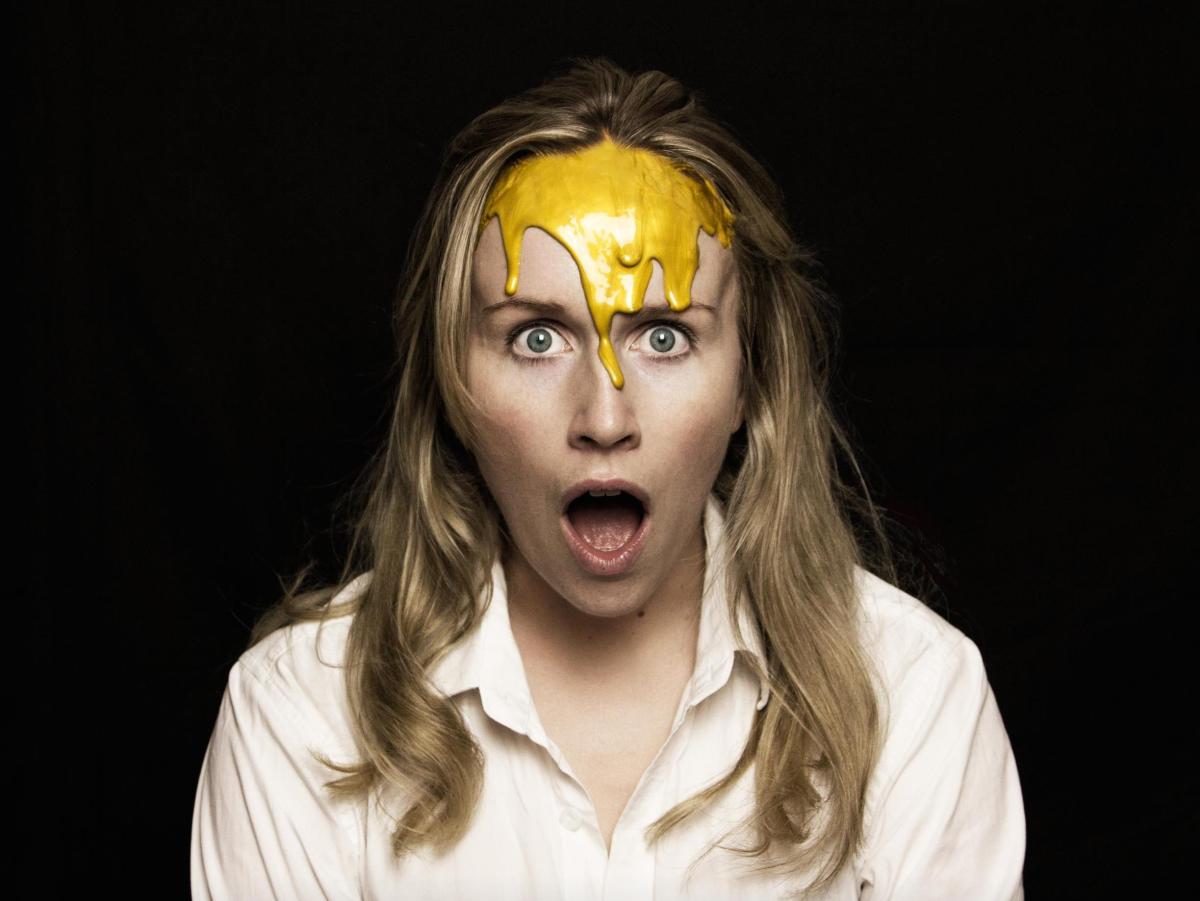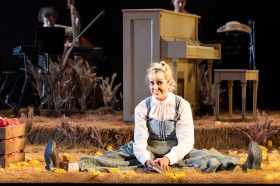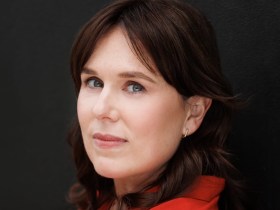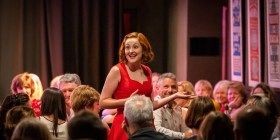The Kings Collective’ s The Wonderful World of Dissocia at Sydney Fringe; image supplied.
Every year, a host of young artists across the country cut their teeth on Fringe Festivals, writing, producing and staging their first shows – sometimes with great success.
But, as every artist knows, registering and mounting a Fringe show can be a risky endeavour – but with the right approach, the risks you take don’t have to land you deep in debt.
‘We strongly feel that artists shouldn’t be losing money on shows in a Fringe Festival; that all shows should be breaking even. And so we try to put as many measures as we can in place to ensure that,’ said Dino Dimitriadis, Artist/Venue Liaison and Operations Manager at Sydney Fringe (2015).
‘I guess it kind of taps into the bigger ethos of our festival here in Sydney, which is that the Fringe in September is really shining a light on the great independent work that happens in this city year round. So that makes it about sustainability; and it means that artists who are doing Fringe should be exploring the Fringe as a model that they can use year round in the independent sector, not just a one-off event in September.’
Melbourne Fringe too places great emphasis on preparing artists for the experience of staging their first Fringe show, offering numerous forums in the lead-up to the festival covering such topics as producing, marketing and working with the media. Beyond that, the Fringe staff are only a phone call away.
‘I think probably our biggest piece of advice to emerging artists in terms of budgeting is to be realistic from the outset about what they hope to achieve and who they think their audience is going to be. Obviously that feeds into budgeting in a large way – it’s possible to spend an infinite amount of money on an independent production, but we know that an infinite amount of money is not necessary what people bring to the table. So I think the best piece of advice is to work out what you might make from your production and let that be the guide for how much you then spend on it,’ said Felix Preval, Producer, Festival and Artist Services at Melbourne Fringe (2015).
Do your research
Before you even think about registering your first Fringe show, talking to other artists about the benefits and costs involved is essential. Ensuring your marketing skills match your artistic process is also useful.
Dimitriadis said: ‘I think sometimes when it’s a first-time show a lot of money is spent on things that don’t need to cost that much or have that much money thrown at them. So I really encourage [artists] to educate themselves about marketing expenses, and to be really strategic and do as much as they can to market their show. I say it’s 50% art, 50% sell, and really try and instil that in them.
‘But we also very much encourage artists to make it about the work and not about the bells and whistles around the work. Especially if they’re a first-time company … a lot of first-time groups will throw a lot of cash at technical equipment and big lighting and big design elements, whereas I think some of the more successful groups distil their productions down to the essence of the work and really showcase what the performance is about,’ he said.
Sharing a venue and marketing collateral with other performers is another great way to keep your costs down,’ said Preval.
‘The likelihood is that for your first season you’re not going to make a huge profit unless you’re very lucky, but we don’t want to see anyone be in debt in from their first Fringe season ever. So finding ways that you can split those costs and share those costs is definitely part of that process for an emerging act,’ he said.
Budget and barter
Melbourne artist Rachel Davis (who together with collaborator Isabel Angus debuted a new show at Melbourne Fringe, PRIME! in 2015) also stressed the value of careful budgeting.
‘What you have to do is just have two really accurate columns, like how much is it going to cost and how much are you going to make? So I think it’s just about understanding really where you sit in the market and not biting off more than you can chew – and also thinking really cleverly about you can reduce your costs,’ she said.
‘When we first started out we did a lot of bargaining with people we know and people who have good skills that we could swap with, or other artists – we did a lot of trading without any money changing hands. So for example, “if you design our poster we’ll choreograph your dance”, or “you record this music for us and we’ll come to test audience and give you feedback”. That sort of thing really helped us keep our costs down.’
David Harrison, from independent Sydney company The Kings Collective recommends being up front about what you can afford when negotiating venue hire fees.
‘Really I’ve found that as artists we have this thing where we feel like we’re begging, or our work is not worthy, so we don’t really want to ask people for favours or things. But what I’ve found is that people genuinely want to help if you’re open and you’re honest and you explain to them what your situation is,’ he said.
‘Transparency I think is key when approaching people like that. Especially in a business sense, for a first-time artist to say “Hey look, I know your venue is $3000 usually for three days; this is who we are, this is what we’re trying to do, and we’re just wondering if you would be interested in supporting us and helping us get off the ground?”
‘That’s a really level way of speaking to someone. We’re not begging, we’re just asking if they’re interested, and the worst they can say is no. But the best they can say is yes, and that is often the case,’ Harrison told ArtsHub.
Minimise rehearsal costs
Harrison highlights another challenge for performers: finding somewhere affordable to rehearse.
‘Rehearsal space hire is so expensive. So if you’re able in any way to be creative and think outside the box, I urge you to do that. If you have someone who owns a café and they close at 5pm every day and no-one’s using the space at night time, then push the tables back and use that as a rehearsal space. Or a shop, or a church basement – any space,’ Harrison suggested.
‘And if you don’t have any money to spend on rehearsal space then use a backyard, a garage. Last year we rehearsed in my cousin’s garage for the entire season and we were fine. It wasn’t the most ideal of conditions but you know, it’s Fringe so you just roll with the punches. But yeah, trying to minimise rehearsal spend is paramount.’
Managing your marketing‘Marketing can be a pretty significant cost, and marketing is one of the areas where you can spend a huge amount of money – so we recommend that people, for their first time, choose their marketing spend carefully,’ said Preval.
‘Probably for a first production we would emphasise the lower cost forms of marketing including social media and a limited print campaign … And then of course really thinking about who your first audience might be, and making sure that they’re the ones who are getting that message first – which for the majority of emerging artists really is your friends and family and workmates before anyone else; they’re the people who are going to help you sell your show.’
Harrison also stressed the importance of developing a strong yet affordable marketing strategy in order to ensure you sell the budgeted-for number of tickets.
‘A lot of people are scared of the word marketing, I think because it seems to out of reach or it doesn’t seem like it’s within their skill set, but I find that marketing is an inherently creative concept,’ he said.
‘You have to really understand your show, and understand who your target audience is – which is really important, being really specific about who you’re targeting … because the market is so saturated when you’re doing a Fringe show; in Sydney Fringe last year there were like 65 theatre pieces.’
Though printing and distributing marketing collateral can be surprising expensive, The Kings Collective have at least saved money elsewhere.
‘We found a really good photographer that we’re friends with, who’s also in the show, so she took the portraits for us. We found a really good designer who understood that we were a young creative start-up and who edited the photos for us. And then it was all about how we could market the show once we had that across all the channels, across the online channels to get the most reach. So really there’s not a lot of money involved, there’s just a lot of planning, and knowing who you are and you want to target,’ said Harrison.
And finally…
So once you’ve written your show and found somewhere cheap to rehearse it, registered with the Fringe and worked out your marketing strategy, don’t forget to make the most of it.
‘Then it’s just about really getting amongst it,’ said Davis. ‘If this is the first time you’re doing a festival, then just throw yourself into it so that you can get to know people, and they can get to know you and get to know your work; and then you can be really part of it to encourage that buzz around your work and encourage ticket sales.’
Sydney Fringe Festival
www.sydneyfringe.com
Melbourne Fringe Festival
www.melbournefringe.com.au






